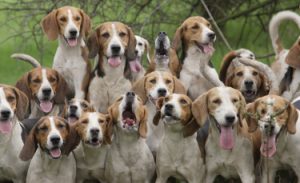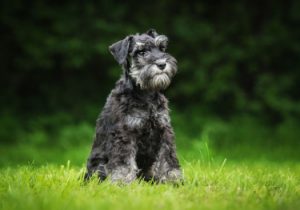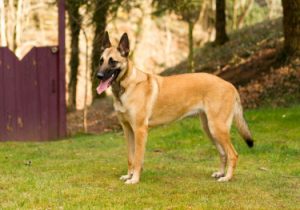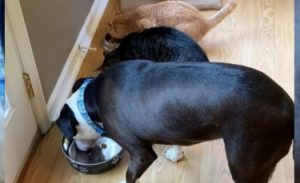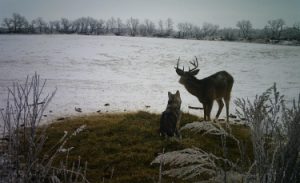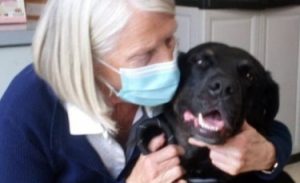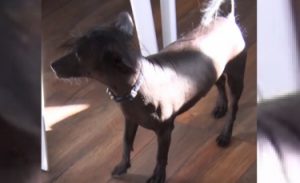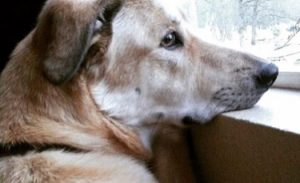Other name: Hungarian Mudi
The Mudi is a medium-sized herding dog, with harmonious proportions and giving an impression of great agility. The gait of the Mudi is characterized by a trotting step.
<!–
–>
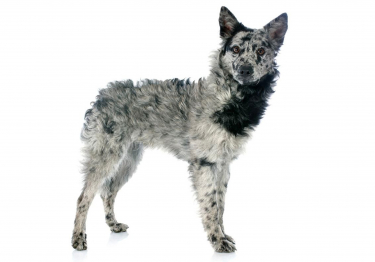
| Half-long | |
| Hungary | |
| Average | |
| Triangular |
| Sex | Weight | Cut |
|---|---|---|
| Female | From 8 kg to 11 kg | From 38 cm to 43 cm |
| Male | From 11 kg to 13 kg | From 41 cm to 46 cm |
History of the breed
Originally from Hungary , the breed of Mudi was obtained by crossing local shepherd dog breeds with other breeds of cattle varieties from Germany, especially those with straight ears, during the 18 th and 19 th centuries. Over the years, the Mudi has displayed its innumerable qualities with the Hungarian shepherds whose flocks and properties it has protected. It was also used in wild boar hunts. It is quite rare to find them outside of Hungary and Central Europe.
The Mudi breed was definitively recognized by the FCI (Fédération Cynologique Internationale) on March 25, 1963. Its official FCI standard in force was published on November 9, 2004.
Physical features
His hair: wavy, even curly, dense, shiny and mid-length (3 to 7 cm) on most of the body. Shorter, straight and smooth on the head and front of the limbs. Presence of spikes and ridges on certain areas of the body. Pronounced fringes on the posterior surface of the forearms and thigh.
Its color: fawn, black, merle blue, gray-blue (ash), brown or white.
Its head: wedge-shaped, tapering towards the nose, giving an impression of dynamism, alertness, cheerfulness and intelligence. The skull and forehead are moderately rounded, the occipital protuberance is not pronounced, the superciliary arches are very slightly developed and the stop weakly marked. The nose is narrow, black in color or matches that of the coat. The muzzle is moderately strong, the muzzle straight, the lips well applied and of the same color as the nose, the jaws articulated in scissors.
His ears: in the shape of an inverted V, set high, erect, covered with abundant hair and very lively.
His eyes: relatively small, dark in color and displaying a look full of recklessness.
Its body: writable in a square, the height at the withers being roughly equal to the length. The neck is set high and moderately long, the top line sloping towards the croup, the withers marked, long and muscular, the back straight and short, the kidney moderately long, the croup short and slightly sloping, the chest slightly convex on the front, the wide and flat ribs and the belly slightly raised.
Its tail: half-up, hanging down at rest, carried in a sickle above the line of the back when the dog is attentive or in action. Covered with abundant and long hair.
Behavior and character
| Affectionate | |
|---|---|
| Calm | |
| Protective | |
| Independent | |
| Hunter | |
| Barks / howls |
Behavior with others
| Cohabitation with children | |
|---|---|
| Sociable with other animals | |
| Love strangers |
the Mudi is a dog full of vivacity, courage and determination . Attentive, naturally protective and alert , he is an excellent guardian. Mudi’s great specialty has always been the handling of large cattle, but he shows remarkable skills in many other areas such as drug research. In short, the Mudi is a versatile companion, defense and working dog .
The Mudi
is it right for you? Take the test!
Education
| Clever | |
|---|---|
| Obedient |
Active and intelligent , the Mudi is educated mainly through play, rewards and encouragement . To use brutality with regard to this dog would not give anything positive, on the contrary. He needs to feel loved, useful and to please his master in order to live happily.
Living conditions
| Suitable for apartment living | |
|---|---|
| Good for new masters | |
| Love it hot | |
| Love the cold |
the Mudi is a dog aimed at owners with a minimum of experience in dog training. Very active, he calls for a living environment that offers him enough space and freedom to express himself. As such, a house with a large fenced garden would suit him perfectly , but the Mudi can just as easily adapt to apartment living if he is walked around and stimulated enough on a daily basis.
Health
| Solid | |
|---|---|
| Ease of gaining weight |
The Mudi is a rustic, robust and resistant dog. He enjoys solid health . Some health issues that can affect the Mudi include hip and elbow dysplasia, patellar dislocation, epilepsy, and eye problems.
Hypoallergenic breed
No
Litter size
Between 5 and 8 puppies
| Major concerns |
|
| Occasional concerns |
|
|||
| Suggested tests |
|
To protect yourself from these risks and insure your companion in the event of health problems, Woopets recommends Mudi dog insurance .
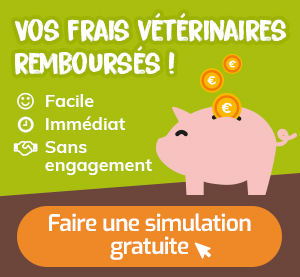
function showAssuranceForm () {var siteReferer = var id_race_association = ”; //console.log(id_race_association);success: function (html) {}});}document.addEventListener (‘DOMContentLoaded’, () => {$ (‘# assuranceModalBanner’). on (‘show.bs.modal’, function (event) {showAssuranceForm ();});});
Life expectancy
Minimum: 12 years old
Maximum: 14 years
The life expectancy of a Mudi is, on average, between 12 years and 14 years.
Calculate the human age of your Mudi!
To choose… 1 year 2 years 3 years Four years 5 years 6 years 7 years 8 years 9 years 10 years 11 years old 12 years 13 years 14 years old 15 years old 16 years old 17 years 18 years old 19 years old 20 years 21 years old
Maintenance and hygiene
| Ease of maintenance | |
|---|---|
| Cost of maintenance | |
| Hair loss |
| Drool level | |
|---|---|
| Ease of grooming |
the Mudi is a dog prone to medium intensity shedding, resulting in equally moderate hair loss. Its maintenance must be regular and does not present any particular difficulty .
It is recommended to brush the dog once a week to ensure and maintain the condition of its coat and skin. These should be examined after outings in the forest, in the countryside or on the beach in order to detect and remove any debris or external parasites. The eyes, ears and pads should also be checked. He can take a bath occasionally , when it is really necessary.
Her teeth need to be brushed regularly to eliminate tartar build-up and the proliferation of bacteria. Finally, if they do not wear out naturally, its claws need to be cut. If you are new to this, it is recommended that you seek advice from a veterinarian or groomer.
Price and budget
Purchase price
Mini
800 € Maxi
1000 €
The purchase price of a Mudi is between 800 € and 1000 €.
Annual maintenance cost
Mini
€ 450 Maxi
650 €
The annual maintenance cost of a Mudi is between 450 € and 650 €.
No name is currently proposed. Use our tool to find the name of your Mudi!
Food
Mudi need a high quality diet suitable for their level of exercise, age and size.
Want the best for your dog?
Create the tailor-made power supply for your Mudi
I discover !
PROMO -30% | Delivered to you!

Physical activity
| Athletic | |
|---|---|
| Energy level | |
| Potential to play |
The Mudi needs to release his energy on a daily basis through frequent and long walks , as well as various exercises . He devotes himself with great pleasure to activities such as agility, canicross or even obedience. Anything that appeals to his physical abilities, coordination and intelligence is right for him.
Competitions
| Classifications & Standards |
|
Others
| Master character <span class="btnTooltip qTip2" title="- Calm: the master must be gentle and know how to show patience. – Active: the owner must be energetic and dynamic to live in harmony with his dog. – Hyperactive: the owner must be stimulating and very restless to suit the temperament of his dog.”> |
Active |
|---|
FCI Information
FCI No.
238
FCI Group
Group 1: Sheepdogs and Cattle Dogs (except Swiss Cattle Dogs)
Recognized by FCI
Since 1963
</div


